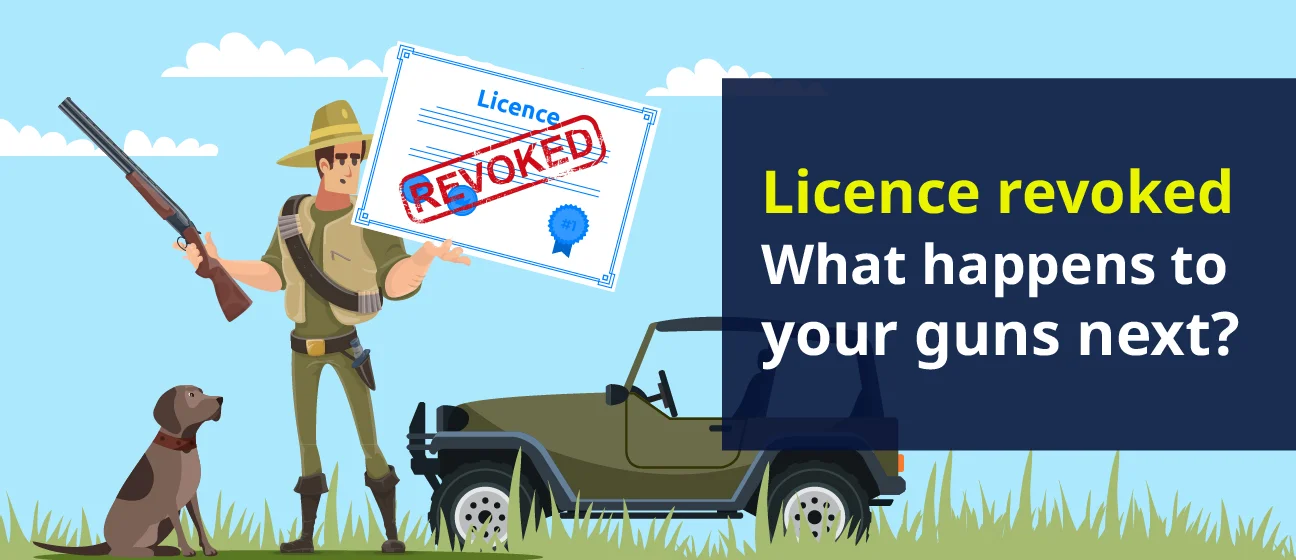What happens to guns after a firearm licence is revoked? A look inside the UK process
23-Apr-2025

Mark Eves
In the UK, firearm ownership is governed by stringent regulations to ensure public safety. When a firearm or shotgun certificate is revoked, it initiates a specific process concerning the handling and disposal of the firearms involved. Understanding this process is crucial for gun dealers, enthusiasts and certificate holders.
Reasons for revocation
A firearm or shotgun certificate may be revoked for several reasons, including:
Public safety concerns: If the certificate holder is deemed a danger to themselves or others.
Legal infractions: Involvement in criminal activities or associations with known criminals.
Mental health issues: Evidence suggesting the holder is of unsound mind or has attempted suicide.
Non-compliance: Failure to adhere to the conditions of the certificate or providing false information during the application process.
Upon revocation, the individual is served with a Notice of Revocation, and the firearms listed on the certificate are typically seized by the police. Alternatively, the certificate holder may be instructed to surrender the firearms voluntarily.
Handling and disposal of firearms post-revocation
Once a certificate is revoked, the following options are available for the firearms:
Transfer to a Registered Firearms Dealer (RFD): The firearms can be transferred to an RFD for storage, sale or disposal. This is a common practice, especially when the firearms have significant monetary or sentimental value.
Transfer to another certificate holder: If another individual holds a valid certificate authorising possession of the specific firearms, a transfer can be arranged.
Surrender to the police: Firearms can be surrendered to the police for destruction. It's essential to contact the police beforehand and follow their instructions for safe and legal surrender.
It's important to note that unauthorised possession of firearms after certificate revocation is a criminal offence.
Appealing the revocation
Individuals have the right to appeal the revocation of their firearm or shotgun certificate. The appeal must be lodged within 21 days of receiving the Notice of Revocation. During the appeal process, the revocation remains in effect; however, the seized firearms can be released to an authorised licensed person.
Legal representation is advisable during the appeal, although it can be costly. Some shooting associations offer legal expenses insurance to assist members with such proceedings.
Role of Registered Firearms Dealers (RFDs)
RFDs play a pivotal role in the management of firearms post-revocation:
Secure storage: Providing safe and compliant storage solutions for firearms during the appeal process or pending disposal.
Facilitating transfers: Assisting in the legal transfer of firearms to authorised individuals or other dealers.
Sales and valuation: Offering services to sell firearms on behalf of former certificate holders, ensuring fair market value is obtained.
Utilising the services of an RFD ensures that firearms are handled legally and responsibly, minimising the risk of unauthorised access or misuse.
Final thoughts
The revocation of a firearm or shotgun certificate in the UK triggers a well-defined process to ensure public safety and legal compliance. Understanding the available options for firearm disposal or transfer is essential for certificate holders and those involved in the firearms industry. Engaging with Registered Firearms Dealers can provide the necessary support and guidance during this challenging time.
Must read:
